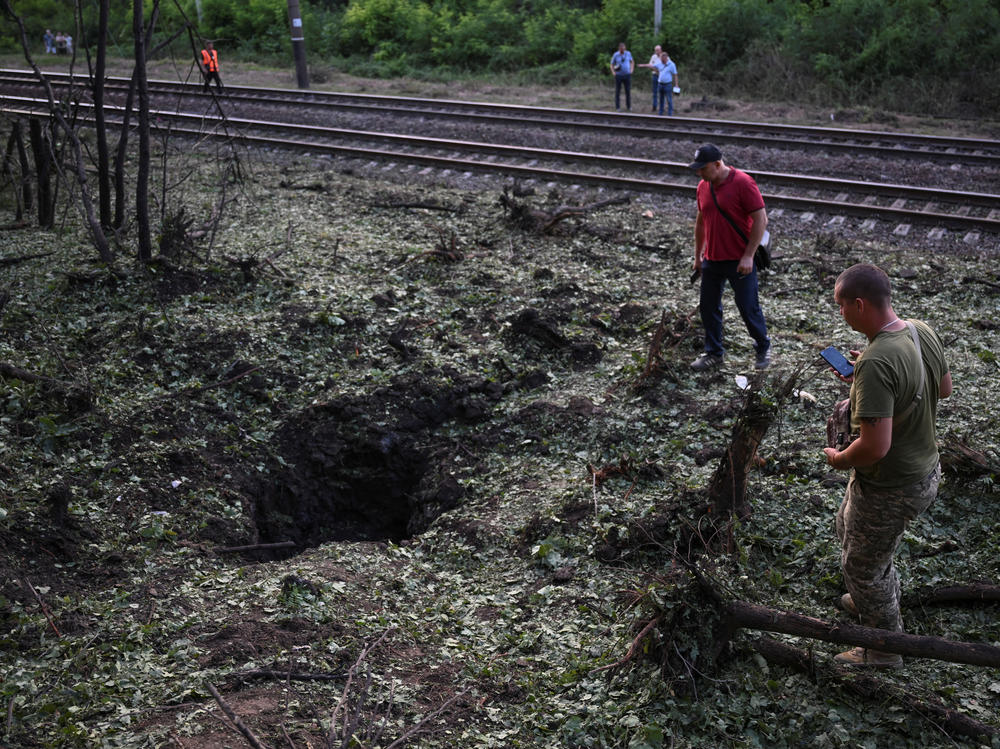Loading...
Section Branding
Header Content
Latest in Ukraine: Ukraine's counteroffensive makes some gains
Primary Content
Here's a look ahead and a roundup of key developments from the past week.
What to watch
Conflict analysts are looking for further signs that Ukraine may have entered a new, bolder phase of its counteroffensive against Russian forces.
Saudi Arabia will host Ukraine peace talks this weekend, the Wall Street Journal reported and Ukrainian officials confirmed, but Russia is apparently not invited.
The United States will take over the rotating presidency of the United Nations Security Council for August, with a focus on food security following Russia's withdrawal from the Black Sea Grain Initiative.
A panel tasked with investigating allegations that South Africa provided weapons to Russia is due to report its findings to the country's president soon.
Friday will mark one year since U.S. basketball star Brittney Griner was sentenced to prison in Russia. After months of negotiations with the U.S., Russia released her in December in exchange for the U.S. freeing a Russian arms dealer.
What happened last week
Ukrainian forces launched a heavy assault in the Zaporizhzhia region, leading to news reports saying Ukraine could be stepping up its counteroffensive. They recaptured a small village, Staromaiorske, from Russian forces. Ukrainian forces are fighting on at least three major fronts in the south, east and northeast.
Over the weekend, Ukrainian drones damaged buildings in Moscow. "Gradually, the war is returning to the territory of Russia," Ukrainian President Volodymyr Zelenskyy said, though Ukraine has not officially claimed the drone attacks.
Russian President Vladimir Putin hosted a summit with African leaders, promising free delivery of tens of thousands of tons of grain to Burkina Faso, Central African Republic, Eritrea, Mali, Somalia and Zimbabwe. But he did not accede to the African leaders' requests to resume the Black Sea grain deal allowing Ukrainian exports — a deal that Russia terminated earlier this month.
Russian lawmakers passed a higher age limit for military conscription. Starting in January, men 18 to 30 will have to carry out military service or training for one year, up from the current age cap of 27. They also approved a measure to ban draftees from leaving the country, after a draft order last year set off a mad rush out of Russia.
The United States will provide $400 million in military assistance for Ukraine, the 43rd time President Biden is using his drawdown authority to support Ukraine against Russia's invasion.
U.S. Marine veteran Trevor Reed was injured while fighting in Ukraine. Reed had been imprisoned in Russia and was freed as part of a prisoner swap with the U.S. last year. At some point he wound up joining Ukrainian forces, but the U.S. government said Reed was not fighting on its behalf.
Ukraine decided to let its athletes take part in competitions in which Russians and Belarusians will be competing under neutral flags and not publicly support the war against Ukraine.
In-depth
Ukraine's troops are slowly pushing Russian forces out of occupied land.
Ukraine struggles to rebuild a navy destroyed by Russia.
Russian journalist Mikhail Zygar discusses Putin, Zelenskyy and the war in Ukraine.
The U.S. and Europe search for new Ukraine export routes after Russia leaves the grain deal.
On the State of Ukraine podcast: Nobel Peace Prize winners say Ukraine needs more weapons to prevail against Russia.
Special report
Russia's war in Ukraine is changing the world: See our report on its ripple effects in all corners of the globe.
Earlier developments
You can read past recaps here. For context and more in-depth stories, you can find more of NPR's coverage here. Also, listen and subscribe to NPR's State of Ukraine podcast for updates throughout the day.
Copyright 2023 NPR. To see more, visit https://www.npr.org.

